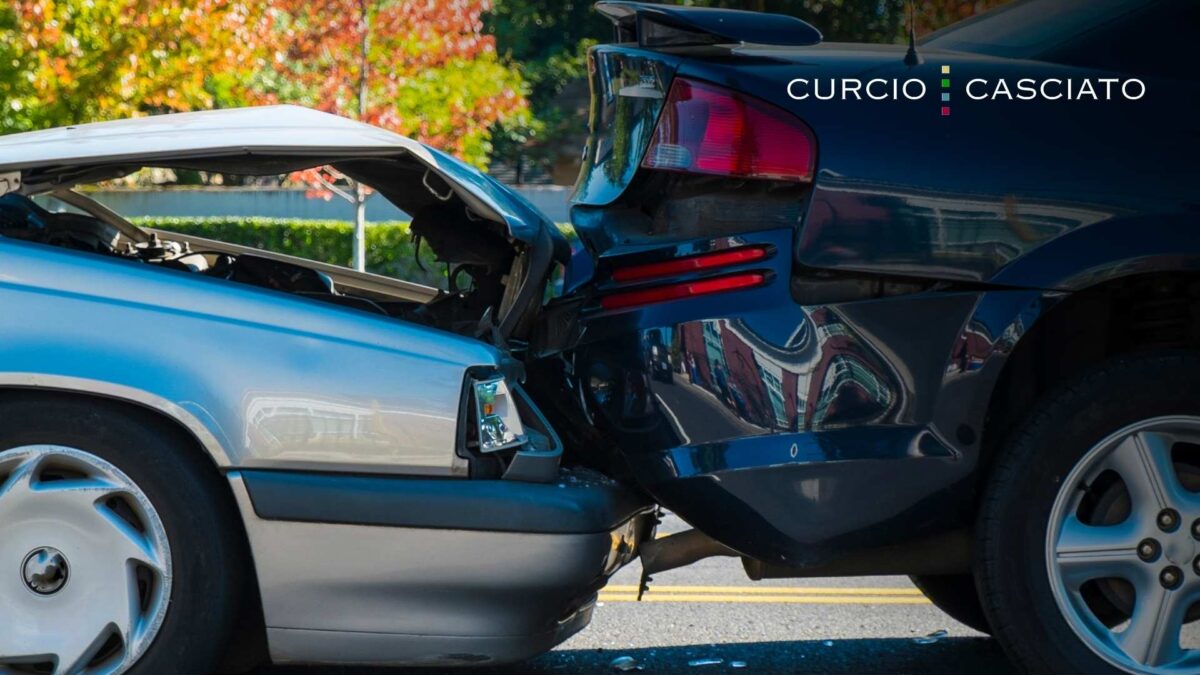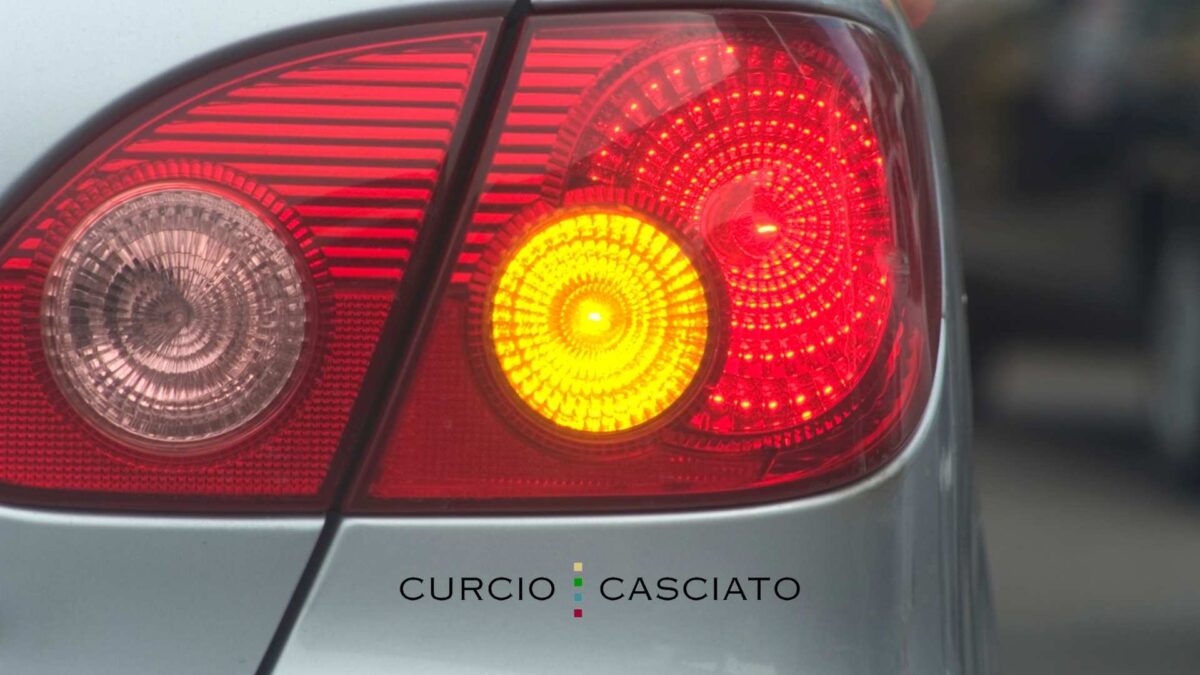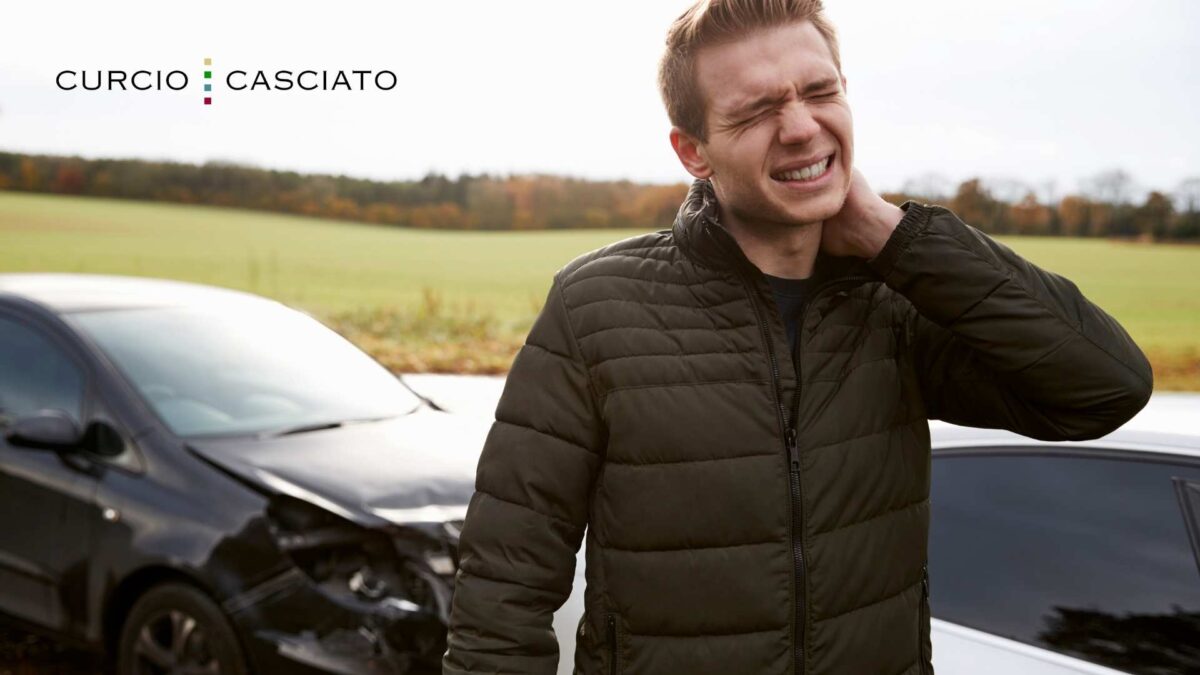Is brake checking illegal in Illinois? Brake checking is an illegal driving practice and a dangerous driving maneuver where the leading driver slams on their brakes suddenly, causing the rear drivers to potentially crash into the car. When considering what causes most rear-end accidents in Illinois, brake checking certainly makes the list. This dangerous driving behavior often leads to a brake-check accident or rear-end accident, which can result in severe injuries and significant vehicle damage.
Brake checking or brake testing is considered negligent driving and can be a factor in motor vehicle accident claims for rear-end accidents. In some cases, brake checking is associated with insurance fraud attempts. If you’ve been involved in a car accident where the other party performed a brake check as an act of aggressive driving, a Chicago car accident lawyer at Curcio & Casciato can help.
Our experienced Chicago car accident lawyers work on a contingency fee basis and offer a free consultation, so brake-check accident victims won’t owe any legal fees unless their car accident lawyer presents a successful personal injury case.
At Curcio & Casciato, we take pride in being a premier personal injury law firm in Chicago. Our Chicago auto accident lawyers handle a variety of cases, including brake-checking accidents, motor vehicle accident cases, truck accident cases, and other case types. To schedule a free consultation with an experienced Chicago car accident lawyer, please call our office at 312-321-1111.
Here, our attorneys will explain what exactly brake checking involves and what to do if you’re involved in a brake check incident. If you’re still wondering, “Is brake checking illegal?” keep reading!
What Is Brake Checking?
Brake checking is a dangerous driving behavior where an aggressive driver slams on their brakes suddenly without a clear reason. Usually, a brake check or brake test happens when the driver behind is not following at a safe distance, and will need to similarly apply their brakes to avoid a rear-end collision.
This brake test is a dangerous practice to engage in, even if the driver behind in the rear car is following too closely. Suddenly braking without cause can lead to rear-end collisions and is often associated with aggressive driving or road rage car accidents.
Is Brake Checking Illegal in Illinois?
Brake checking is illegal in Illinois. Brake checking qualifies as reckless driving behavior due to its potential to cause car accidents, including rear-end collisions. Engaging in any brake checking or brake testing can lead to significant legal consequences for the driver who initiates the brake check.

What is the Penalty for Brake Checking in Illinois?
In Illinois, brake checking can lead to severe penalties. Brake-checking the driver behind you not only risks rear-end collisions but is also indicative of aggressive driving behavior. Illinois laws address this through fines, driving record points, and potential criminal charges for reckless driving.
Victims of rear-end collisions resulting from brake checking have the right to seek compensation for vehicle damage and personal injuries. Given the complexities surrounding these types of rear-end accidents, it’s crucial for victims to consult an experienced car accident lawyer who understands the nuances of Illinois traffic law and the car accident claim process. This ensures accountability for the aggressive driver and helps safeguard public safety on Chicago’s roads.
Why Do People Brake Check?
Brake checking is a highly dangerous maneuver and aggressive driving tactic that has the potential to result in serious injuries. It is also financially damaging for the brake checker, as they could be left to pay for repairs to both cars and medical bills. The cause of brake checking involves one of the following.
Road Rage
Road rage is a significant factor behind why drivers engage in brake checking. This form of aggressive driving emerges from anger or frustration due to traffic conditions, perceived discourteous behavior by other drivers, or personal stress. When other drivers feel slighted, they might resort to brake checking as a means of asserting dominance or “teaching the other driver a lesson.”
This dangerous driving behavior, however, escalates the situation, potentially leading to dangerous confrontations and rear-end accidents. Road rage-induced brake checking reflects a momentary lapse in judgment where the driver prioritizes immediate emotional satisfaction over safety and legal consequences.

Insurance Fraud
Another motive behind brake checking is insurance fraud. In these instances, a driver deliberately causes a rear-end accident to file claims for vehicle damage or personal injuries, exploiting the insurance company for financial gain.
The fraudster typically targets other drivers who are following closely, suddenly braking to ensure a rear-end collision. Since the rear driver is often presumed at fault for the accident, the fraudster anticipates a straightforward car insurance claim process. This scam not only endangers the lives of other drivers but also contributes to higher insurance premiums for all policyholders.
What Should I Do in the Event of a Brake Check Accident?
If someone brake-checked you, do not admit fault or apologize for the crash, as you aren’t responsible for the brake-check. Contact law enforcement right away. Stay calm as you ask for the contact information of the person who brake-checked you. When the police arrive, explain the situation and why you believe the other driver brake-checked you. The police reports will outline the rear-end accident in great detail, and you should ask for a copy of the police report. Having your claims in police reports could serve to protect you from liability for the rear-end collision, as well as to establish the guilt of the other driver.
If You Brake Check Someone, Who is at Fault For the Accident?
Typically, in rear-end collisions, the rear driver is considered the at-fault driver under the assumption they were following too closely. However, if it can be proven that the other driver engaged in a brake check, with or without the intent to commit insurance fraud, the fault for the accident may shift, impacting car accident claims and insurance processes.
In Illinois, if you brake-check another driver and a brake-checking accident occurs, you are likely to be considered the at-fault driver. Brake checking is known to provoke rear-end collisions, typically making the brake checker at fault for the accident due to aggressive driving or negligent driving behavior.
Illinois follows a fault-based system in car accidents. Since brake checking is considered a preventable and hazardous action, the person engaging in aggressive driving behaviors would typically bear the responsibility for any resulting vehicle damage or injuries. Additionally, the concept of comparative negligence might apply, potentially reducing compensation if the rear driver is found to be following too closely, although the primary fault still lies with the brake checker.
Do Brake Checks Affect Accident Claims?
Yes. Illinois is a modified comparative negligence state. This means that injured parties can collect damages only if they were found less than 50% at fault for the accident. It is highly possible that if you brake-checked another driver, you will be barred from recovering damages.
Can You Sue for Brake Check Car Accidents in Illinois?
Yes. The other driver can be held responsible for the rear-end accident if it can be established that they brake-checked you or engaged in a similar aggressive driving tactic. Furthermore, if you have sustained severe injuries as a consequence of another driver’s brake checks, you may be entitled to compensation through a personal injury lawsuit.
Keep in mind that you must be able to show that the other motorist was at least 50% to blame for the accident due to their reckless driving. An experienced attorney can assist you in proving this.

How Do I File a Personal Injury Lawsuit for Brake Checking?
In an Illinois car accident case, you can pursue several different forms of compensation, including property damage and medical bill costs. In a modified comparative negligence model, you must prove brake checking in your personal injury claim. If you have video footage or witness statements of the road rage incident, this will greatly help you. The more you can prove that, as the rear driver, you were not at fault, the better your chances of receiving compensation will be. Three common methods of recovering damages include the following.
- Working with an experienced attorney or law firm to file a personal injury claim
- Filing a car insurance claim with your own insurance company
- Filing a car insurance claim with the insurance company of the at-fault driver
How to Prove Brake Checking in a Personal Injury Claim
It may be difficult to establish that drivers engage in aggressive driving behaviors or purposly brake-checked the driver behind them, but it is possible. If you choose a competent Chicago car accident law firm like Curcio & Casciato, your lawyer will use legal strategies to get this proof.
Common Brake Checking Accident Injuries
Injuries resulting from brake-checking accidents, a perilous outcome of sudden braking and aggressive driving behaviors, encompass a broad spectrum of physical harm. These incidents, often precipitated by road rage car accidents or deliberate acts of brake checking, can lead to significant and life-altering injuries for all involved.
Among the most common are soft tissue injuries. Soft tissue injuries, while sometimes dismissed as minor, can lead to chronic pain and long-term discomfort if not properly treated.

Brain Injuries in Brake-Checking Accidents
Brain injuries in brake-checking accidents can result from various scenarios, including car clip car accident injuries where sudden, sharp maneuvers cause vehicles to collide. Such impacts can lead to severe head trauma, potentially resulting in cognitive impairments and eye problems after a car accident. Victims of these incidents should consult a Chicago brain injury lawyer to explore their options for obtaining head injury compensation, which can cover the extensive treatments often required for recovery.
Internal Injuries from Break-Checking Car Accidents
Internal injuries from car accidents are a serious concern in cases of brake checking. The sudden halt can cause occupants to be violently thrown against their seat belts or other parts of the car, leading to internal organ damage. These injuries may not be immediately apparent, underscoring the importance of medical attention following an accident.
Back and Spinal Cord Injuries from Brake Check Accidents
Brake check accidents can lead to severe back and spinal cord injuries, including various types of spine fractures. Victims suffering from these injuries should seek the expertise of a Chicago spinal cord injury lawyer to navigate the complex process of claiming compensation for medical expenses, rehabilitation, and potential lifelong disability support.
How a Chicago Personal Injury Lawyer Can Help
A Chicago personal injury lawyer can provide invaluable assistance in brake-checking accident cases by gathering evidence, negotiating with the insurance company, and representing victims in court to ensure they receive a fair rear-end collision settlement for serious injuries and losses.
Remember, having an experienced Chicago injury attorney on hand for any car accident claim is always advisable. Having a lawyer on hand early on can ensure a successful personal injury case later.
Experienced Car Accident Lawyer for Brake Checking Accidents in Chicago, IL
After a motor vehicle accident occurs, you likely want to know exactly what your legal rights are. At Curcio & Casciato, we prioritize the representation of injured victims in auto accident cases, truck accidents in Chicago, and many other personal injury cases. If you want to discuss the answer to the question “Is brake checking illegal?” in more depth, give us a call. To schedule a free consultation with our law firm, please call 312-321-1111 or fill out our online intake form.



